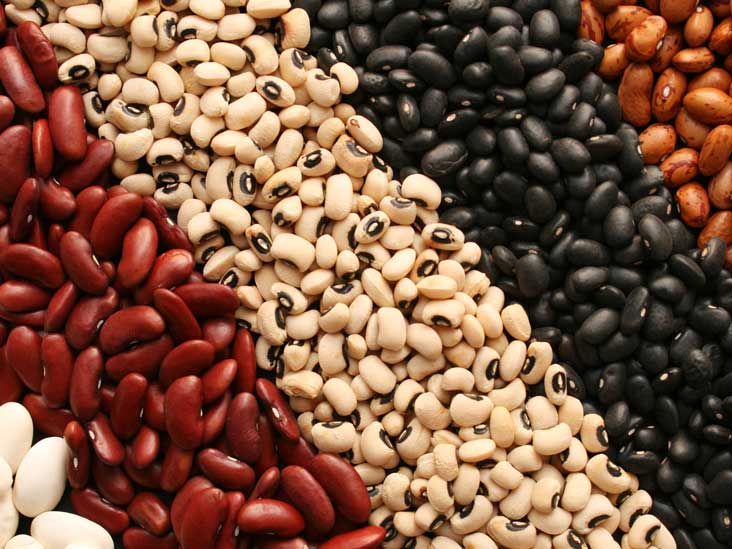SOMO
Member
- Joined
- Mar 27, 2018
- Messages
- 1,094
With the exception of red kidney beans, I've always found them to be a well-digested food for me.

One of the biggest strikes I hear about beans is that they're toxic in their raw form and they cause flatulence/gas in many people. But Mexican people don't constantly have high gas from traditional bean dishes. This is likely because they have been consuming beans since youth. When I order Mexican food, I always ask for EXTRA beans. I don't experience gas or bloating from beans - actually I find them EXTREMELY filling, right up there with baked potatoes. I'm assuming the glucose load from the starch is triggering satiety for me.
Bean toxicity is a small concern. In my opinion, it is not the phytates or oxalates or PHA/lectins in legumes that is a concern, it is the Raffinose.
There is evidence that consuming raffinose (the difficult-to-digest carbohydrate/prebiotic fiber in beans), like consuming lactose, will eventually lead to the ability to better digest that carbohydrate.
I have seen my own lactose "intolerance" (bloating, rumbling, diarrhea and gas) get better by simply drinking milk more often in smaller quantities. I see no reason why this wouldn't also happen with beans, legumes, lentils, etc.
Well-cooked beans (well-cooked starch) don't have resistant starch and so aren't going to create endotoxin. But the Raffinose does not get cooked out, unlike Starch. That is, raffinose is only slightly decreased by cooking.
Also kidney beans have insoluble fiber as well, which RP says speeds up transit time in the colon.
Not to mention, beans are concentrated sources of these nutrients:
-Folate
-Copper
-Zinc
-Vit B1
-Vit B6
-Magnesium
-Protein (even if bean-protein is 30% bioavilable, that's still 13g protein per cup of beans.)
Black Kidney Beans > Red kidney beans.
Red beans have the most PHA, and 5 raw beans is enough to kill a person (but nobody eats raw beans so this is a moot argument against legumes.)
PHA is destroyed by boiling the beans in water (212F) for 10 minutes. Usually directions on beans say to boil for 20 minutes or more, so there is unlikely to be any PHA left over.
Anyone else do fine with legumes?
Even if they're not an ideal food, I haven't noticed any over toxicity from them and besides, I'm striving for good health and enjoyable diet, I'm not a professional bodybuilder or going for UBER OPTIMAL HEALTH.

One of the biggest strikes I hear about beans is that they're toxic in their raw form and they cause flatulence/gas in many people. But Mexican people don't constantly have high gas from traditional bean dishes. This is likely because they have been consuming beans since youth. When I order Mexican food, I always ask for EXTRA beans. I don't experience gas or bloating from beans - actually I find them EXTREMELY filling, right up there with baked potatoes. I'm assuming the glucose load from the starch is triggering satiety for me.
Bean toxicity is a small concern. In my opinion, it is not the phytates or oxalates or PHA/lectins in legumes that is a concern, it is the Raffinose.
There is evidence that consuming raffinose (the difficult-to-digest carbohydrate/prebiotic fiber in beans), like consuming lactose, will eventually lead to the ability to better digest that carbohydrate.
I have seen my own lactose "intolerance" (bloating, rumbling, diarrhea and gas) get better by simply drinking milk more often in smaller quantities. I see no reason why this wouldn't also happen with beans, legumes, lentils, etc.
Well-cooked beans (well-cooked starch) don't have resistant starch and so aren't going to create endotoxin. But the Raffinose does not get cooked out, unlike Starch. That is, raffinose is only slightly decreased by cooking.
Also kidney beans have insoluble fiber as well, which RP says speeds up transit time in the colon.
Not to mention, beans are concentrated sources of these nutrients:
-Folate
-Copper
-Zinc
-Vit B1
-Vit B6
-Magnesium
-Protein (even if bean-protein is 30% bioavilable, that's still 13g protein per cup of beans.)
Black Kidney Beans > Red kidney beans.
Red beans have the most PHA, and 5 raw beans is enough to kill a person (but nobody eats raw beans so this is a moot argument against legumes.)
PHA is destroyed by boiling the beans in water (212F) for 10 minutes. Usually directions on beans say to boil for 20 minutes or more, so there is unlikely to be any PHA left over.
Anyone else do fine with legumes?
Even if they're not an ideal food, I haven't noticed any over toxicity from them and besides, I'm striving for good health and enjoyable diet, I'm not a professional bodybuilder or going for UBER OPTIMAL HEALTH.
Last edited:
